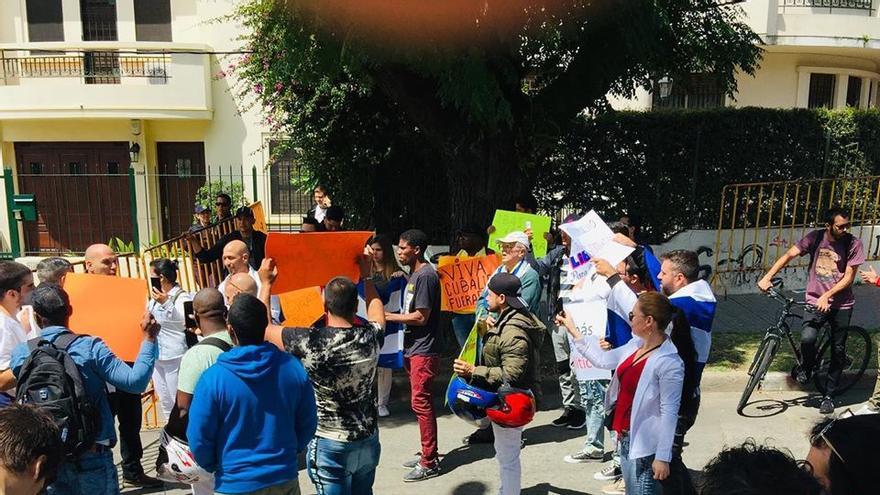
![]() 14ymedio, Havana, July 14, 2022 — Only three Cubans obtained refugee status in Uruguay during the first six months of this year. In that period, as published Wednesday by the Montevideo Portal newspaper, the Refugee Commission (CORE) of the South American country denied 89 applications for refuge, of which 82 were from Cubans, who are the most rejected national group with 85% of the total.
14ymedio, Havana, July 14, 2022 — Only three Cubans obtained refugee status in Uruguay during the first six months of this year. In that period, as published Wednesday by the Montevideo Portal newspaper, the Refugee Commission (CORE) of the South American country denied 89 applications for refuge, of which 82 were from Cubans, who are the most rejected national group with 85% of the total.
The reason for granting asylum to so few nationals of the island, sources from the Uruguayan Foreign Ministry allege to the local media, is the argument that the applicants give in their applications: “What they say in the interview is that it’s for economic reasons, and economic reasons are not reasons that justify refuge.”
The Uruguayan authorities thus ignore not only the scarcity and permanent crisis to which the island is subjected by an economic system that doesn’t work, but also the political persecution of those who disagree with the Cuban government, which increased with the repression of the anti-government demonstrations of 11J (July 11th) last year.
Venezuelans, however and strikingly, are accepted in Uruguay almost in their entirety. According to CORE data, since 2019, asylum has been granted to all Venezuelan nationals who have applied for it except two. From January 1 to May 31, 2022, they were one hundred percent of the applicants, a total of 83.
According to Montevideo Portal, the Refugee Commission has a high demand for refugee applications that could be around 10,000, which it can’t cover.
With Uruguayan law, Right to Refuge and Refugees, which the publication cites, the process of requesting refuge and resolution can take up to four years.
Under international standards, the administrative process of refuge must be efficient and adaptable, according to the United Nations Refugee Agency (UNHCR), but in practice it involves cumbersome and lengthy procedures.
In contrast to Uruguay, for example, the Spanish Refugee Aid Commission accepted only 10.5% of asylum applications in 2021. It adds that this percentage is an increase compared to 5% the previous year. It also clarifies that for the previous year’s asylum applications, those requests from countries such as Mali, which had been rejected previously, were favorably resolved.
Translated by Regina Anavy
____________
COLLABORATE WITH OUR WORK: The 14ymedio team is committed to practicing serious journalism that reflects Cuba’s reality in all its depth. Thank you for joining us on this long journey. We invite you to continue supporting us by becoming a member of 14ymedio now. Together we can continue transforming journalism in Cuba.
